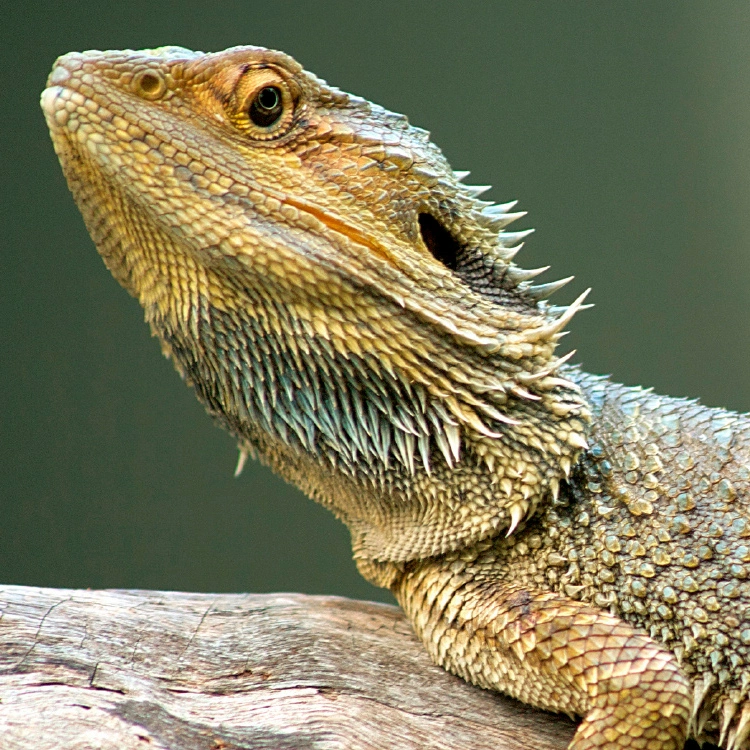cross-posted from: https://lemmy.ml/post/2674486
TL;DR: the meat industry’s misleading messaging campaign + lobbying
While I’m sure the meat industry/lobbying has made sure people knew about the drawbacks of plant based meat I think there’s several legitimate reasons it hasn’t taken off yet. It’s firmly stuck in the middle.
When compared to animal based meat plant based meat is:
- more expensive
- not hardly any healthier
- doesn’t taste as good
When compared to more traditional plant based protein, plant based meat it is:
- more expensive
- much less healthy
- doesn’t taste as good
The only benefit of plant based meat is that it’s more environmentally friendly than traditional meat.
That’s something that most people don’t care to pay more for.
I hope R&D continues into plant-based meat as I do think that once the cost comes down below animal-based meat it will see wide adoption. Especially because the price of animal-based meat will continue to rise.
The only reason it’s so much more expensive than animal-based meats is because of the amount of subsidies the meat industry gets. Actually, now that I think about it, all of the major pillars of the US agricultural industry, whether it be meat, corn, or dairy, are upheld by subsidies.
I agree, it’s also why tobacco in the US is quite cheap even though the health effects are well documented.
That doesn’t change the reality of playing field that plant-based meat has to play in currently.
The only reason it’s so much more expensive than animal-based meats is because of the amount of subsidies the meat industry gets.
If the environmental costs of producing it were added as taxes to meat, its price would skyrocket. Related link.
When compared to more traditional plant based protein, plant based meat it is:
- more expensive
- much less healthy
- doesn’t taste as good
Now hold on just a minute!
Plant based meat is expensive and unhealthy, but I’ll be damned if I let you besmirch my junk food!
Haha my bad my bad.
In Canada, A&W’s “Beyond Burger” is actually even better tasting than a regular meat burger imo.
I haven’t really gotten into Impossible or Beyond. I’ve tried them both but they just don’t seem worth the cost or calories. Boca on the other hand make a hell of a plant based burger.
I went through all of the fancy imitation burgers, and ended up deciding that good ol Boca is better. It doesn’t hurt that it costs so much less.
once the cost comes down below animal-based meat it will see wide adoption
oh yeah, absolutely. the nanosecond it becomes cheaper is the moment McDonald’s and all the other large corporate fast food places make the switch. taste or anything else is secondary to shareholder profits anyways (which in this case is a good thing at least)
Taco Bell has “bulked up” their ground beef with soy for years IIRC. Nobody noticed, because their seasoning and actual beef flavor were strong enough to cover.
My problem with Impossible/Beyond is neither is nearly as good as real beef flavor, and I’m saying this as somebody who was vegetarian for over a decade. Boca and Morningstar were my favorites back when I didn’t eat meat, and I still buy the Morningstar breakfast patties because I like them better than greasy meat patties to start my day.
I’ve bought impossible burgers and real burgers before and really struggled to taste the difference.
unfortunately I fall into the lucky few who get extreme stomach pain, cramps, nausea and like over a day of horrific diarrhea from Impossible meat, So that basically means I’ll never eat it again, and also be incredibly unlikely to try any others.
Took me 3 times before I noticed the pattern and started poking around online about it, to find I wasnt alone.
I wouldn’t say nobody noticed.
What is “plant-based meat” vs “traditional plant-based protein”? Like, which things are in which categories? Tofu? Beans? Seitan? Peanut butter?
Plant-based meat are products that try to emulate real meat like Beyond Meat or Impossible Foods.
Plant based protein would be everything you just listed.
deleted by creator
I would say you should change “not hardly any healthier” to “much less healthy”. There are definite gotchas for eating anything in excess, but real meat (let’s say beef, since that’s the popular discussion point) is one of the most nutrition-rich foods you can possibly eat, with the most important nutrients that are hard to get elsewhere effectively. The Impossible Burger (probably the least unhealthy plant burger) might compete with an 80/20 burger (depending on what metrics you use for health), but a 90/10 burger SORTA blows it out of the water except a few random added minerals you just get in your morning multivitamin.
The only benefit of plant based meat is that it’s more environmentally friendly than traditional meat.
I’m going to use OP’s tact and suggest that this is not strictly true either. It took me years of not understanding how the meat industry worked differently from the farms I grew up near, only to realize it DOESN’T work that much differently from the farms I grew up near at all. This video is a great resource by a neutral person (no bias towards or against meat or veganism) who did the research himself. There are still arguments that stand about meat being environmentally unfriendly, but just as many arguments to the contrary.
I don’t have any particular issues with plant based meats, but I really don’t like the whole idea that everything has to replicate meat.
There are so many amazing dishes that just happen to be vegetarian/vegan that seem to go overlooked
You often hear this take from non-vegans. If someone wants to make substitutes, what’s the problem? Who cares?
Making the good option easier is a good way to get people to do the right thing
deleted by creator
One thing many vegans don’t get about non-vegans is that we’re frustrated at veganism for the same “reasonable if not valid” reasons. I’ve had some vegan family/friends have serious health issues directly related to their refusal to eat meat. Yes, there’s a lot to that, and it usually spawns from people easily prone to PTSD being made to watch some disgusting documentary about the meat packing industry and going full starvation on and off until all their hair fell out. Is it veganism’s fault? Not directly.
It’s kinda like the Catholic Church. There’s SO FEW pedophiles in the Catholic Church, but for anyone who has been touched by that, the Church itself is tainted far worse than the facts allow.
Agreed, meat serves a specific role within traditional dishes. I find well cooked mushrooms to be one of the better substitutes in most sauce based dishes, though it lacks in protein. If we are going full vegan I believe South Indian to be some of the best cuisine in the world.
There is so much flexibility in cooking. I got some beyond meat Jamaican patties this week and I just genuinely wasn’t impressed with the flavor and texture.
I’d argue that bad implementation of substitutes is generally the culprit here. Meshing well with the cuisine is a better move. I’d rather have a curry rice with herbs filled patty.
Anyway I guess my point is that making meat replacement options just taste “OK” isn’t doing a lot of favors.
Many (probably most) vegetarians or vegans didn’t start that way, so having the option to have some familiar foods without the meat is nice, beyond stuff for example is not cheap where I live, so it’s a treat to have one, but sometimes you just feel like a greasy hamburger that tastes like beef
For some people they need a sufficient meat replacement to be able to give up meat. People with ARFID for example who already have very limited food options and have a preference for meat can find it very difficult to just have vegetarian meals
Because selfish humans love their fucking meat and they don’t care that animals are locked into prisons where they can barely move or clean themselves, generate massive acres of literal shit pools that pollute large areas, the impact that kind of farming has on the environment….
THAT is why there is motivation for replication. Without it how do you shut down these disgusting cow/pig/chicken torture facilities
Yet so many of these people that claim to care about the environment still have children. Hypocrisy at it’s finest.
Hard agree. People will call you an extemist like child free communities that hate kids, as if the state of the fucking world is reason enough to chill on the kids thing
If you had to choose between being vegan and the environment going to shit, or eating meat and the environment getting figured out, which would you pick?
I find a lot of vegans have a really inaccurate view of non-vegans wrt eating meat. It’s not that we selfishly choose to eat meat despite feeling animals dying is a bad thing. It’s that we don’t think it’s a bad thing that animals die in a farm for food.
And if you realize that, you might find you have things in common with non-vegans. I fight for free-range laws, anti-farm-cruelty laws, etc. I just think you’re morally in the wrong about everyone stopping eating meat. Oddly, a lot of us non-vegans see vegans to be selfish. But we try not to use that to be uncivil towards them.
If the meat and dairy industries were to stop being subsidized, the real costs would skyrocket animal products and plants and plant based products would look much, much cheaper.
https://www.aier.org/article/the-true-cost-of-a-hamburger/
If that is to be believed it says their study in 2015 showed the cost of beef bring brought from $30 to $5 (I assume per pound, but 1/6th cost is rediculous)
That is much higher than I expected
From the last line of the article.
When buying that next Big Mac treat it more like $13. No, scratch that, double it.
Glad I don’t eat that crap. 👍
IMO, his article is dramatically better than his last line. He is quite accurately attacking Big Ag (something even a majority of farm groups do), but throwing all the subidies together and adding it to the burger is simply mathematically inaccurate. I don’t think he intended that line to be taken literally (as in, we’d suddenly see meat prices skyrocket that high), but it leads to a pretty unjustifiable soundbyte nonetheless.
I get meat untouched by subisidies all the time, and it sells for very nearly the same price as subsidized meat. Unfortunately, most of the subsidies are really just giving some companies a monopoly, which they abuse to control prices. The majority of feed (for example) is owned by a couple multinational countries because of the subsidies we’re discussing. Those subsidies are actually an obstacle for small farmers, who very arguably could resell their meat for the same (or less) than Grocery Store prices if their costs weren’t artificially higher than they should be.
Unfortunately, this is where it gets complicated, the subsidies now amount to 44% of plant farmer income. It will devastate the plant farmer industry to strip away the meat subsidies too quickly or carelessly.
I mean, here’s something you might not realize about the subsidies. A good deal of the money from them come from farmers. Have you ever heard of the Beef Checkoff Program? It’s a fee paid by farmers, ranchers, and producers every time they sell commodities… like beef. That money used to be voluntary and used for meat and dairy marketing. Now, it’s mandatory and used to subsidize feed to Big Ag. In a microcosmic level, it’s impossible to say subsidies will increase the price of meat when it costs the rancher money on the net.
The farm subsidies (all of them, not just the meat subsidies) really need to be cleaned up. They’re not about helping an industry, but about lobbiests having locked in competitive advantages at the expense of everyone else. ( ref )
That’s not strictly true. The practice of applying the value of subsidies and applying it to retail cost of a product is bad-faith. Not saying some of these subsidies shouldn’t be changed.
For example, many of these subsidies just give “Big Ag” an advantage over smaller farms, and actually lower the quality and value of meat on the shelves while raising prices (by hurting competition).
And depending on where the numbers come from, one of the “subsidies” generally included in numbers is the “lease” cost of letting animals graze on national parks. This is an incredibly complicated “subsidy” because it is a net good for the National Parks and for the environment to allow that to happen.
Finally, people generally consider “animal products purchased by government” to be a subsidy. Technically it is, but you can imagine that the army buying what it needs isn’t giving an industry an unearned advantage.
Most importantly, these subsidies aren’t the government giving ranchers money.
There’s no question that some of these subsidies need to be changed dramatically. But you’re very likely to NOT see a massive or long-term price jump when they do. (ref)
For me, I buy meat from places that don’t benefit from these subsidies, and I generally pay within the range of $1 more or less per pound than stuff from “Big Ag” in my grocery store.
Just eat some damn falafel, people - it’s not hard to make, it doesn’t pretend to be anything other than a plant, and bulk dry chickpeas are cheap as fuck and last forever.
Falafel doesn’t taste like a cheeseburger. Beyond burgers taste like tasty cheeseburgers.
Yeah, falafel sandwiches taste better
As a meat eater I agree. Part of the backlash probably is the promise of the replacement patties tasting like meat - for me they absolutely do not. Falafel on the other hand is great.
Falafel can either be the most delicious thing you’ve eaten in a year, or a bland, dry mound of sadness, and there’s no in between.
I do find that a good sauce can mitigate overly dry falafel, but some are just better than others.
deleted by creator
It was almost as if the meat industry orchestrated the whole thing itself.
It did.
… “As a nutrition scientist I have one view…Processing per se isn’t bad. What is bad is food that has no nutritional value.” (Or, in the case of red meat, food that raises your risk of several chronic diseases.)
Nail on head
Can we edit post titles when the article has a clickbait headline, please? Though thanks for the anticlickbait tldr in the body :)
I would disagree here. SOME of the backlash may be from the meat industry, but some is also from independent experts in fields of nutrition and the environment.
It’s the same way I constantly catch vegans making false claims about health or the environment. That doesn’t mean there aren’t TRUE claims about the health or environment. You gotta see the forest for the trees on both sides.
I will say, at least the Impossible Burger has a much better environment footprint than lab-grown meat ever will.
My take on this (an I’m vegan so there’s a possibility of bias) is that most of the mainstream claims such as there being no health downside and a plantbased diet is significantly less harmful for the environment are simply true.
But there is a subset of vegans that for some reason believe they need to justify it further than that who say that plant based diets have some nigh on magical health abilities and they feel so much better etc, pretty much all of that is some form of bs. Just like the idea that humans didn’t need to eat meat in the far past due to b12.
All in all, it’s an infected debate where vegans/nonvegans just throw false shit out to see what sticks.
My take on this (an I’m vegan so there’s a possibility of bias) is that most of the mainstream claims such as there being no health downside and a plantbased diet is significantly less harmful for the environment are simply true.
I try to avoid talking BOTH environment and health in the same discussion because I find the risk of it turning into a gishgallop back-and-forth between the triforce of plant (environment, health, ethics). And obviously ethics can become a nuclear bomb dead-end of different fundamental positions. But I do feel of the two sides, the vegan side is definitely the one benefitting most from misinformation. I don’t think you’ll do the gishgallop thing (you seem to be pretty good-faith), so I’ll give my thoughts on both. But if you did decide you wanted to discuss one in detail, I’d ask that we keep it to one of your choosing :)
I’m not sure if I’ve provided these links (lemmy context issues). This guy is not biased, a lot health focused, and did a LOT of research on the topic of nutrition and veganism.. There’s a lot to pack/unpack, but most of it is based around the fact that a supermajority of vegans are suffering from malnutrition in one way or another, compared to a significantly lower number of non-vegans. As for B12, it is 92% of the population. He also did research into the environmental impact of the meat industry (in another video), and it’s equally eye-opening. I’m not blindly believing him, and I don’t expect you to. My experience has been growing up in non-mega farm areas, so I have seen the things he’s saying firsthand. The river in my hometown died from plant farming; it was a fairly big deal, and a friend of mine (from a totally different area) did her Environmental Engineering thesis on it. It wasn’t about the plants as much as the overfarming altogether. Which is similarly true with meat, imo.
One thing as a meat-eater I find is that vegans often do one inadvertant disservice (the same types of vegans who throw false shit out). They change the focus from how to improve a healthy balance (less red meat, more white meat and healthy seafood, regulating away processed meats that are confirmed carcinogens, etc) to “veganism is the cure”. And instead of focusing on some very real issues with global warming, they focus on the meat industry of countries like the US that are simply an insignificant part of the environmental threat. If every American and European quit meat cold turkey tomorrow, and the most optimistic non-bs numbers were true, it would slow global warming by a tiny fraction of a percent. Look at this map for a second before reading my next line ( full context article here ) . Instead of focusing on meat emissions in ways that probably will never happen and won’t do much if it does, we could be focusing on regulating and presssuring India and Africa (and maybe China) to clean up their act.
When we look at the supposed environmental impact of meat, it’s pretty important to know that there are African countries that produce more agriculture-related GHGs than all of the US and Europe combined. It’s important to note that the second biggest meat producer in the entire world (US) isn’t even a blip on the radar. There is a right way to do meat, at scale, that is environmentally friendly. And as bad as the US supposedly is, they’re pretty good in aggregate. If there’s room for improvement in the US meat industry… well, I don’t expect you to believe the next sentence, but I have come to believe that if meat is grown correctly, the symbiotic Meat+veggie+grain farm is simply better for the environment than plant alone. Lots of reasons (fertilizer, the manure->field efficiency, waste products not usable for any other purpose, etc). But suffice to say even if I’m wrong, it approaches zero impact to do meat as long as you do it right.
I don’t mind arguing (in fact i really like arguing) and I also disagree with most of your points. That said however If I am to argue then I don’t want to do massive walls of text and rather pick a single well defined point. So if you want to do that as well then put forward a single point which you feel strongly about and I’ll say if I disagree or not (alternatively I could pick something from your text, I just wouldn’t want to feel like I’ve picked your weakest point).
As I said, if you want to argue, you pick the topic :). Though, I’m not really looking to argue, just to squash misinformation (which you haven’t really provided any of directly that I’ve seen).
But that said, I only really provided two points. It’s just not possible to talk about a complicated topic with short blurbs. If you aren’t up for reading 4 paragraphs to support a claim with evidence, I’m not sure a discussion would be productive. I say something, you disagree with it, I will have failed to quantify it (to keep my post small) and you would look correct for the wrong reasons.
Okay, I would argue that the guy in the video is extremely biased. I don’t know how you would determine bias in a person, but I think that a clear indication is to not caveat any of the cited sources with their various flaws in methodology and only show studies “in your favour” assuming they don’t all show that. I looked at criticism towards the videos claims by Nutrivore criticism. I read half of the critique but only doublechecked a couple of the studies that i could access.
If you disagree with my assessment that the video is very biased either put forth your own definition of bias or I could pick a couple of the (in my opinion) biased claims and we can talk about those.
Okay, I would argue that the guy in the video is extremely biased. I don’t know how you would determine bias in a person, but I think that a clear indication is to not caveat any of the cited sources with their various flaws in methodology and only show studies “in your favour” assuming they don’t all show that
I’m not sure that’s a fair objection. In the video, he jumps directly to experts (feel free to prove bias from them). In his webpage, he cites fairly reasonable and unbiased sources.
I’m trying to read the rebuttal you linked, but it’s fairly packed with ad hominems. This is most definitely the style of source I have a lot of trouble giving any reliability to beyond the core factuality. You would probably agree this rebuttal is **fiercely **biased? And of the arguments he makes, I’ve sorta been involved in discussions on many of them in the past and could fill a dozen pages of takes on those.
I think there’s two ways we could go on this. Either, we could address the claims you think are most biased (and hope they are impactful), or we can address the claims you think are most impactful (and hope they are biased).
If we do the former, it’s about discussing whether the there’s enough to demonstrate that the author himself is biased; but I have to warn you that showing some of his informing sources are biased seems an untenable way to show he himself is biased… instead, it seems we’d want to find some factual evidence of bias. Whether you think that bias is willful-misleading (like the ad hominems in the rebuttal) or merely good-faith failure to adjust for bias would be up to you.
I think the latter might work better (though not quite what you offered) because if you can show the impactful parts of his video are biased (or just plain wrong), it doesn’t matter if he’s biased and the video would need to be discarded.
I’m ok with either, to be honest.
I agree that the site i linked is (probably) somewhat biased, but that does not matter at all in this context. There is nothing wrong with using data provided by biased people if you are aware of the bias and take it into account when using the data.
We need to scale this argument down though. I refuse to take an argument over text if we don’t just laserfocus on the argument. If you have a problem with a source i put forth then just say that without adressing its claims and we can discuss if the source is acceptable before continuing.
If we start over where I should have started in the first place. What do I need to show to convince you that he’s biased? (If you disagree with any prior statments in this comment lets start arguing those first. I don’t want to have a multithreaded argument)
Maybe not ever, I’m hopeful for lab grown meat to be a success AND be good for the environment.
I’m hating how lemmy.ml is losing my context parent, but I think I posted a video to you prior.
The problem with lab grown meat is that the process is inherently VERY complex and touchy. They like to compare it to making beer or wine, but it’s an exacting process. IF we could figure out lab grown meat, that advance would likely involve a far bigger advance in nuclear medicine, changing the world of medication to a “this is YOUR cure for cancer, created for pennies based upon your DNA” type of utopia.
Maybe there’s someone close to this who can suggest to me what I’m missing there, but the obstacles for lab grown meat are simply those same golden obstacles we’ve had to far more important problems, that we’ve thrown far more money at.
From the video, the biggest pain point for the next 20 years is this. You cannot scale the process. The bigger your bioreactor, the lower the efficiency. “Scale” involves building hundreds or thousands of resource-expensive bioreactors, filling them all with chemicals, and running the bioreaction over a long period of time, in highly a sensitive lab environment. Unfortunately, it feels like this is a “down to go up”. While possible, it seems as likely to be a success as some sort of New coal tech wiping Solar out and being the real solution for dirty power. If you put THAT kind of money into the already well-understood meat industries that already have some good best practices (that aren’t necessarily followed like they should be), you’ll end up with agriculture that’s good for the environment AND billions of dollars to spare to use on some other green initiative.
Of course, the real issue is that the countries whose people care the most aren’t the problem at all. The US is a great example. Our meat industry is an insignificant part of the problem, at <2% of the GHG emissions. The US meat industry is actually statistically INCREDIBLY effective… but the meat industry in other countries, not so much.
Short version for anyone wondering:
Even assuming the absolute best, most rose colored glasses kind of outlook, lab-grown meat will be many times as expensive as meat currently is, and that’s notwithstanding the billions in investment it will take to get there. Currently it’s so expensive to produce that it doesn’t even really exist except as publicity stunts. But unlike other potentially paradigm-shifting tech like solar, there’s not an exponential downward-sloping cost-adoption curve to look forward to. As of right now, inexpensive lab-grown meat doesn’t seem difficult, it seems scientifically impossible.
It would probably be much better to spend those billions on reducing methane in cow farts (seriously), using sustainable grazing to preserve and rejuvenate disappearing and desertifying grasslands, accelerating carbon capture, subsidizing Omnivore’s-Dilemna-style holistic farming, etc.
Because, seriously, affordable lab-grown meat is not going to happen without several Nobel-worthy breakthroughs. Instead, it’s just going to waste a bunch of money out of the pockets of well-intentioned VCs and institutional investors who could be using it more effectively.
Exactly this.
And then there’s some other contexts with the meat production to help realize that those billions might be better spent on something totally different. The US only produces about 30% more methane total than it did in the colonial days. Back then it was largely buffalo. SO long as there’s a balance of things, we have a cycle of cows producing methane, breaking down to CO2, the CO2 being absorbed by crops, and the crops eaten by cows. Honestly, research in carbon seems to be the best focus if we want to make any improvements without just cutting down the major contributors. And the real biggest are fossil fuel emissions, mining, and deforestation.
Completely agree that in general, methane/carbon emissions from ruminants cannot be much of a long-term problem since they’re part of a closed carbon cycle.
But, it is worth research IMO, simply because methane is so much more powerful as a greenhouse gas for the short time it remains methane. And it seems quite possible we could steer cow diets in a less methane-y direction without much cost if we had all the right information.
Absolutely worth research. It’s also worth research (before action) to try drastic countermeasures that don’t involve reverting the earth to an earlier state. For example, animal methane production in the US is not much higher than it ever was. If a “vegan revolution” happens, the animal methane production in the US will be dramatically lower than pre-civilized homeostasis. Probably not a big deal (since it’s such a tiny percent of GHGs anyway).
Similarly, I agree we could find a way to reduce cow methane production that could be given to the actual countries (potentially) contributing to global warming with their livestock… And also similarly, we should take each step with some care so as not to worsen the situation.
We think we know a lot about carbon and global warming, and we do. But we need to remember as we look at this stuff that we don’t know everything.
But those same “independent experts” are equally shoving (real waste meat) sausages down your throat.
Is that how you respond to a good-faith conversation by someone who has researched this?
Those independent experts corroborate my own experience, the environmental exports I’ve had the opportunity to befriend, etc. Further, if you look carefully, the environmental numbers that some vegans like to use actually work against them if taken in an unbiased light.
But that’s ok, you won because you drew a picture with me having a silly face and you having a chad face :)
EDIT: Flummery to lemmy’s recent context BS. I realized that you replied to one of my only comments that didn’t include citations, so I backed off on the “how you respond to facts and evidence”.
EDIT2: Is anyone else experiencing what I am? When you look at a context, you can’t see its parent post anymore. When you reply to something, the link for the original post seems to be overwritten by the link to your reply (with no context of the previous post). I end up having to load the post and ctrl-f search for the damn comment I intended to reply to
Well it’s easy to conclude what you’re shoving down you throat.
Dead cow, from a local farm, fed local waste grains. Dead chicken, grown by my neighbor, allowed to eat grass feed would otherwise get burned. I’d eat eggs galore, but I’m allergic. As much seafood as I can handle because it’s plentiful around here. Overflow venison when I can because it absolutely has to die whether it’s eaten or not.
Also, the best local produce money can buy, fertilized by their manure. Yes, I eat vegetables that are grown with the help of animal shit. Lovely, smelly, animal shit.
Oh I know exactly what I’m shoving down my throat, and have no weird queasy fear about talking about where it came from or what it took to get there. More importantly, I know what I’m eating is good for me and good for the environment.
There we have this “good-faith” conversation. Idiot.
Excuse you? This was in response to “it’s easy to conclude what you’re shoving down your throat”. What exactly should a person respond in that case? I gave you the facts, precisely.
I feel the moral case for veganism colors every other argument, so I cut that one out at the pass.
Also, true colors showed; first ad hominem came out. Reported and blocked
Yeah, like I started your bullshit. I called it out and you freaked out. Have a nice life (or not, I don’t care).
The real reasons plant based meat has not taken off is very simple.
- Price
- Taste (or texture for some people)
When both of them are comparable to animal meat, we will see mass adoption. There is no conspiracy. The front group mentioned here isn’t active beyond North America…yet there is no adoption in Asia either.
I’m in south America and there’s a lot of plant based burgers available. And you know what? The cheapest costs double of a 100% beef burger.
Coincidentally, the half beef, half soy protein burgers are half price of 100% beef burgers, 1/4 of full plant based burgers.
Why is that? The half soy burgers are made by the same companies as the full beef burgers, might be related to economies of scale?
Possibly subsidies too, government there might be subsidizing cattle farming.
I live in SA. This ismisinformation. Its absolutely cheaper to buy plant based meat alternatives (beans) than to buy dead animals here.
I just checked. It’s not as exaggerated as I put it, but in general it holds up.
Check the price per kilo.
The most expensive are the Not Meat burgers, which are kinda similar to Beyond Meat.
The cheapest are the soy+meat.
Second cheapest are the beans/lentils patties, which while tasty, they’re nothing like a real burger. I didn’t even mentioned them in my previous comment.
The full meat burgers are about 30% cheaper than the Not Meat (plant based) burgers.
Accusing others of misinformation, and saying dead animals instead of meat, pushes people away and hurts your argument, btw.




You’re not looking at the price of dry black beans
Yeah well, last time I checked, dry black beans are not burgers.
Funny, last I checked they were the main ingredient in burgers. And way cheaper than ground beef. That’s the point
I said much the same on the Behaw thread. If price parity was there or a sliiiight premium, I’d probably be at least 80% veggimeat. And then as said on another comment, once mcD’s/etc starts using it due to price, people won’t think twice about eating and buying it. I don’t think the need or want will be reducing long term as we give it what climate change has in sure for us, so whoever cracks scaling production will have it made.
I feel texture is there on most of the bigger name products, and as someone who doesn’t usually seek out veggies, I loooove Beyond’s flavor profile.
In the U.S. prices for meat are artificially brought down through subsidies. I searched around and saw that in 2015 the cost of beef was brought down to roughly 1/6 the cost.
If we subsidized plant based meats like that they would be less than half the cost of beef. That would bring more people to eating it (not everyone, but many) and that should in theory reduce emissions for all those supplemented purchases.
1/6
If you’re interested, please read my reply to someone else here. Subsidies are not direct to ranchers or meat costs, and applying them to meat retail prices is disingenuous. Many subsidies are actually paid by the farm industry, even ranchers (only benefitting Big Ag), and so actually increase meat prices
I buy meat from a butcher, from a ranch that provides most of its own feed in grass and buys the rest cash (I use feed for my example because feed subsidies are one of the biggest… unfortunately, those go to a small number of megacorporations only). They benefit from zero subsidies, but have to pay for some of those subsidies whenever they sell beef. I pay within $1/lb of Grocery Store prices.
Of course money is ultimately zero sum in its way, but it’s arguably grains and vegetables that might take some of the heat if those subsidies were removed. Why? 44% of farmer income is feed subsidies: the government buying grain that is often grown in fields that won’t grow anything else anyway. This keeps grain costs down (for obvious reasons) but also fills farmer margins so they aren’t forced to raise prices on other crops.
So yeah, 1/6 is true, and 100% unusable data.
TVP has been cheap for a long time. Black bean burgers are like the cheapest thing you can make, magnitudes cheaper than animals.
The article posted by OP isn’t about TVP though? It specifically mentioned Beyond meat.
TVP has always been pretty popular among vegetarians, they are just in a different category with the newer plant based meat discussed in the article.
(Just in case of any misunderstanding. I like TVP also.)
The same people fear mongering about the health dangers of fake meat and ‘cancer causing’ aspartame will happily eat red meat which is several categories higher on the cancer causing scale. As in, definitely proven to cause cancer, rather than a soft maybe
I agree, but disagree. Aspartame is not a real cancer risk, but neither is red meat. Red meat is technical 2A with Aspartame 2B, but both have shown no signs of causality.
Similarly, zero cancer deaths have ever been attributed to red meat (~34,000 have been attributed to processed meat).
Red meat’s fine in moderation. Aspartame is fine in moderation. NOTHING is fine in excess.
I honestly don’t think it will ever be a thing.
Thank god for beans
But beans are a plant-based meat?
Plant-based meat would be vegaburgers and so on, not tofu or beans.
Mix black beans with aquafaba and some spices and you have plant-based meat
Plant based meat is usually made of peas or soy though
The distinction is in whether it tries to emulate e.g. burgers or chicken bits rather than staying truer to itself.
deleted by creator
The only people who enjoy the taste of plant based meat never liked the taste of meat based meat to begin with.
Personally, I hope lab grown meat grows enough to make it a non issue.
deleted by creator
…what? that’s just nonsense.
I eat meat and whitecastles impossible sliders are better than their meat ones. The impossible whopper is about as good as a whopper. Of course some of this is due to the quality of the meat burgers to begin with.
Now that’s just incorrect. The people who enjoy the taste of plant based meat probably liked the taste of meat a lot, that’s why they’re seeking to replace it, but environmental and/or ethical considerations are important enough to them to justify a small loss or simply change in flavor.
For me it is the texture far more than the flavor that makes most plant based “meat” less than fun. Like how turkey bacon is a mockery of actual bacon.
That said there are a couple chicken nugget subs that are good and the impossible burger is decent with strong condiments. But most are just sad pretenders like turkey bacon.
Dishes that are not pretending to be meat are the best vegetarian dishes.
The issue I have is the inflammation it causes in my damaged hips. Every time I have all that pea protein, I have a hard time existing the next day.
I love the taste of meat. There are very few things in world that taste as good as raw beew strips or or raw venison with a dash of salt and pepper.
Still, about 10 years ago I started eating less red meat for health reasons (both sides of my family have long history with high blood pressure and cardiovascular diseases). I’ve always loved vegetables as well, so the change wasn’t so hard.
Maybe 5 years ago a lot of plant based protein products started to show up in the supermarkets here, so I decided to give them a try. And I found out they were pretty good. I actually now prefer plant based burger steaks over the real ones, and my spaghetti bolognese is far better when I make it with the fake minced meat.
My dad used to work in the dairy industry in the early 80’s and he told me thst he got to taste the early fake meat products while visiting some production plant in Denmark or Sweden. All the guests were served two minced meat steaks, of which the other one was plant or dairy based. None of them could tell the difference even back then.
I find it personally difficult to eat a meal without meat at all, and I enjoy some of the plant based meats. They aren’t all great, but beyond chicken is better than some chicken nuggets, and I forget which brand it was but one of them does better brats than most grocery stores.
Edit: Hard agree on hoping for lab grown meat to progress. That feels like the actual future of meat consumption to me.
It won’t. At least, it probably won’t. Here’s a good high level explanation as to why. I’ve worked on software used by some of these pharm industries and have some understanding of the scale of these types of operations. Everyone who talks about carbon footprints of animal farms will have to accept the carbon footprint of a synethic meat calorie is going to be a LOT higher due to dozens of factors. If you care about the environment, even 50 years from now it’s probably cheaper to have cows AND spend margins to become carbon neutral than it would be to do lab meats.
If it’s about saving animal lives, that’s an ethical issue and where I’m learning to stop getting involved. I have enough knowledge in ethics to stand my own on that topic, and enough experience arguing ethics with vegans to know it’s time to stop trying to discuss that with them.
The seperation of the animals and the products their bodies are packaged up to resemble keeps us numb to the horrors of slaughterhouses.
does not matter the quality of life of any animal rasied to be exploited for their body. All of them end up in the same slaughterhouse.
it is illegal to film how your food is made if you eat animals. they want to keep you willfully ignorant.
it is illegal to film how your food is made if you eat animals. they want to keep you willfully ignorant.
Not quite true. Ag-Gag laws as they are called were found unconstitutional. It is absolutely 100% legal to film how your food is made. It is absolutely true that some states tried to make it illegal, th ough.
There’s only a few standing laws to the contrary, most of which are unenforceable but a few of which are “creative”. Learn more here.
I dislike plant based meat, cuz if I wanna have some vegeyables I just cook myself vegetables Edit: I dislike the taste
The plant-based meat substitutes are a different category: different nutritional profile (higher in protein), more chewy and savory. I love them as I love my vegetables.



















